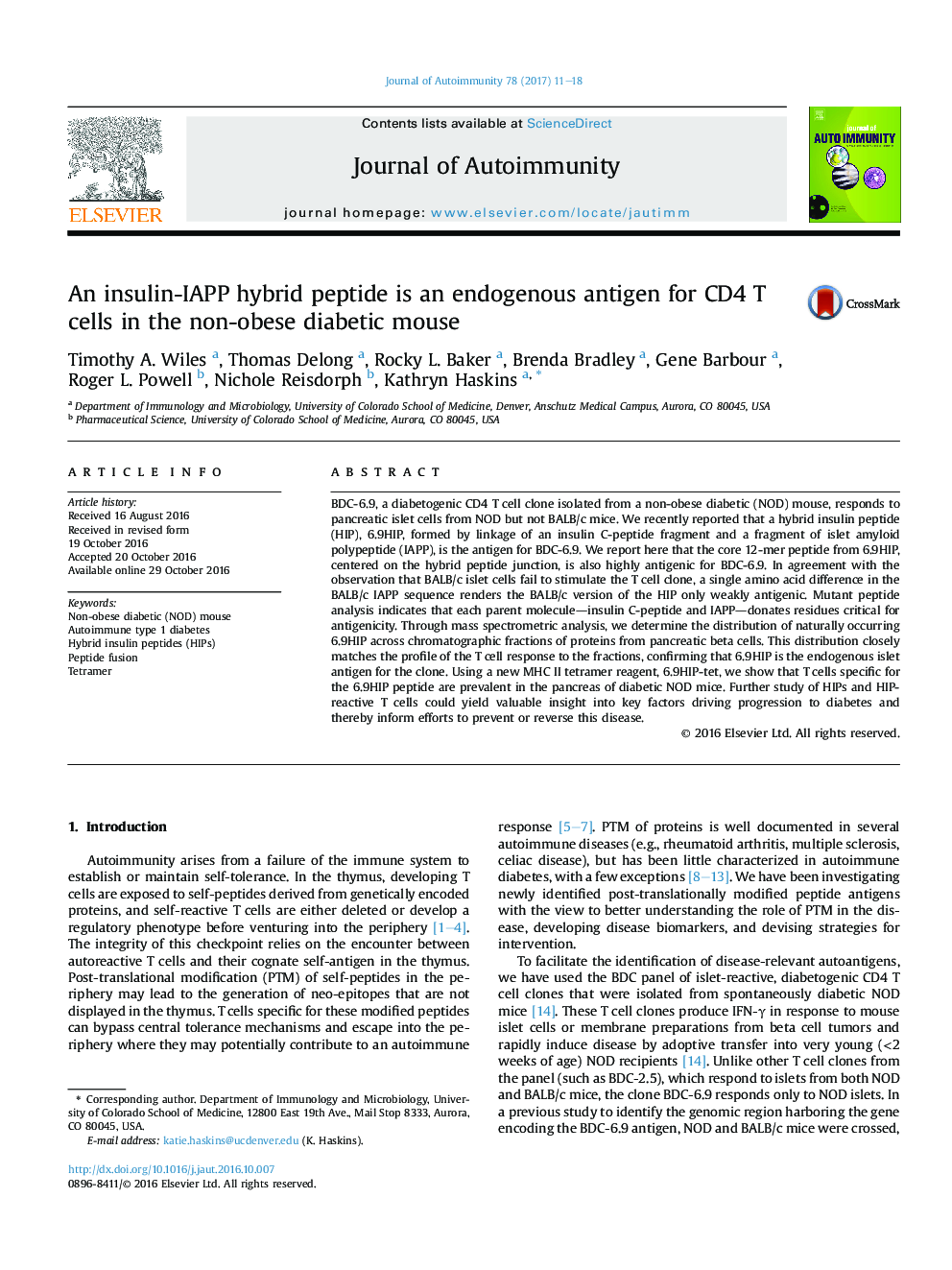| کد مقاله | کد نشریه | سال انتشار | مقاله انگلیسی | نسخه تمام متن |
|---|---|---|---|---|
| 5667854 | 1592271 | 2017 | 8 صفحه PDF | دانلود رایگان |

- A hybrid insulin peptide (HIP) is highly antigenic for diabetogenic CD4 T cell clones.
- The T cell epitope is centered on the hybrid peptide junction.
- Each parent molecule of the HIP donates residues critical for antigenicity.
- Mass spectrometry confirms that the HIP is an endogenous beta cell antigen.
- HIP-reactive CD4 T cells are prevalent in the pancreas of diabetic NOD mice.
BDC-6.9, a diabetogenic CD4 T cell clone isolated from a non-obese diabetic (NOD) mouse, responds to pancreatic islet cells from NOD but not BALB/c mice. We recently reported that a hybrid insulin peptide (HIP), 6.9HIP, formed by linkage of an insulin C-peptide fragment and a fragment of islet amyloid polypeptide (IAPP), is the antigen for BDC-6.9. We report here that the core 12-mer peptide from 6.9HIP, centered on the hybrid peptide junction, is also highly antigenic for BDC-6.9. In agreement with the observation that BALB/c islet cells fail to stimulate the T cell clone, a single amino acid difference in the BALB/c IAPP sequence renders the BALB/c version of the HIP only weakly antigenic. Mutant peptide analysis indicates that each parent molecule-insulin C-peptide and IAPP-donates residues critical for antigenicity. Through mass spectrometric analysis, we determine the distribution of naturally occurring 6.9HIP across chromatographic fractions of proteins from pancreatic beta cells. This distribution closely matches the profile of the T cell response to the fractions, confirming that 6.9HIP is the endogenous islet antigen for the clone. Using a new MHC II tetramer reagent, 6.9HIP-tet, we show that T cells specific for the 6.9HIP peptide are prevalent in the pancreas of diabetic NOD mice. Further study of HIPs and HIP-reactive T cells could yield valuable insight into key factors driving progression to diabetes and thereby inform efforts to prevent or reverse this disease.
Journal: Journal of Autoimmunity - Volume 78, March 2017, Pages 11-18